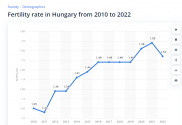Okay, but in my personal opinion that point is way way far ahead. But maybe you're more optimistic.
I'm not optimistic or under any illusion that we are approaching a society where robots do everything and people just enjoy life. I answered that in response to someone else claiming that life would be meaningless if people didn't have to do work to survive. I'm saying, no it wouldn't; it would be super awesome! However I didn't say we're going there at any visible rate. I think even in 100 years, we might still not see this kind of society even on the horizon.
This is definitely true to an extent, however it is not only the traditionally educated that are important. You need people for agriculture, fishing, etc. etc. In fact, the curious trend of modern AI/automation is that they are getting better at coding/creative-endeavors much faster than they are getting better at basic mechanical things.
Well, that's an important aspect of the evolution of society. You go from 20 pig farmers with no middle school or possibly even elementary school education carrying buckets in the baking sun wading in knee deep mud to 8 college-educated technicians, 2 mechanical engineering PhDs and a management PhD working in a highly automated 10+ story facility to raise 10x more hogs than the 100 guys in a field while occupying the same floor space. Education and automation is the future.
However, I would agree with your characterization largely (with some caveats), quantity * quality. I believe however that you can't be very different to others in terms of quality. Every human is largely capable of the same stuff, obviously culture, values play some part, but every human can be trained to be of the same "quality." So quantity also matters a lot.
But with swaths of undereducated, it would appear that the bottle neck is education rather than population. And then, with many highly educated who are jobless, we are at another bottleneck of development rather than education. So in this bottleneck pyramid, pure population is still in overabundance.
I agree, however my point was different. I am talking about predictions. There were many predictions all the way from 1990s to 2000s about limb replacement etc. but they have not come to fruition. Specially in biology it is very hard.
But let's agree to disagree. My question to you is that, obviously it's good and convenient if there are artificial wombs, and automation etc.. But what if you are wrong, and there are no artificial wombs, advanced automation, AI etc. And in the end number of humans do matter in the end still after 50 years for sustaining the economy, innovation, defence and having a large market?
In that case, there is no disagreement. I was simply arguing against the claim that artificial wombs are just "meat machines" that churn out babies that are "not the same" and thus it's dehumanizing people. That would be an argument to not invest in artificial wombs, and I strongly disagree. It's a technology that needs to be invested in and you seem to agree. However, long before you made your account, there was a debate here regarding strife between the genders with some users claiming men and women don't need each other anymore with artificial wombs. I came out strongly against that sentiment because 1. you could lose a generation or even more waiting for this technology since we're not anywhere near getting it to work and implementing it in mass with affordability and 2. once the technology is made, it should be a boost to what we already have, instead of a reason to shun each other and break down the connections and weaves of society.

